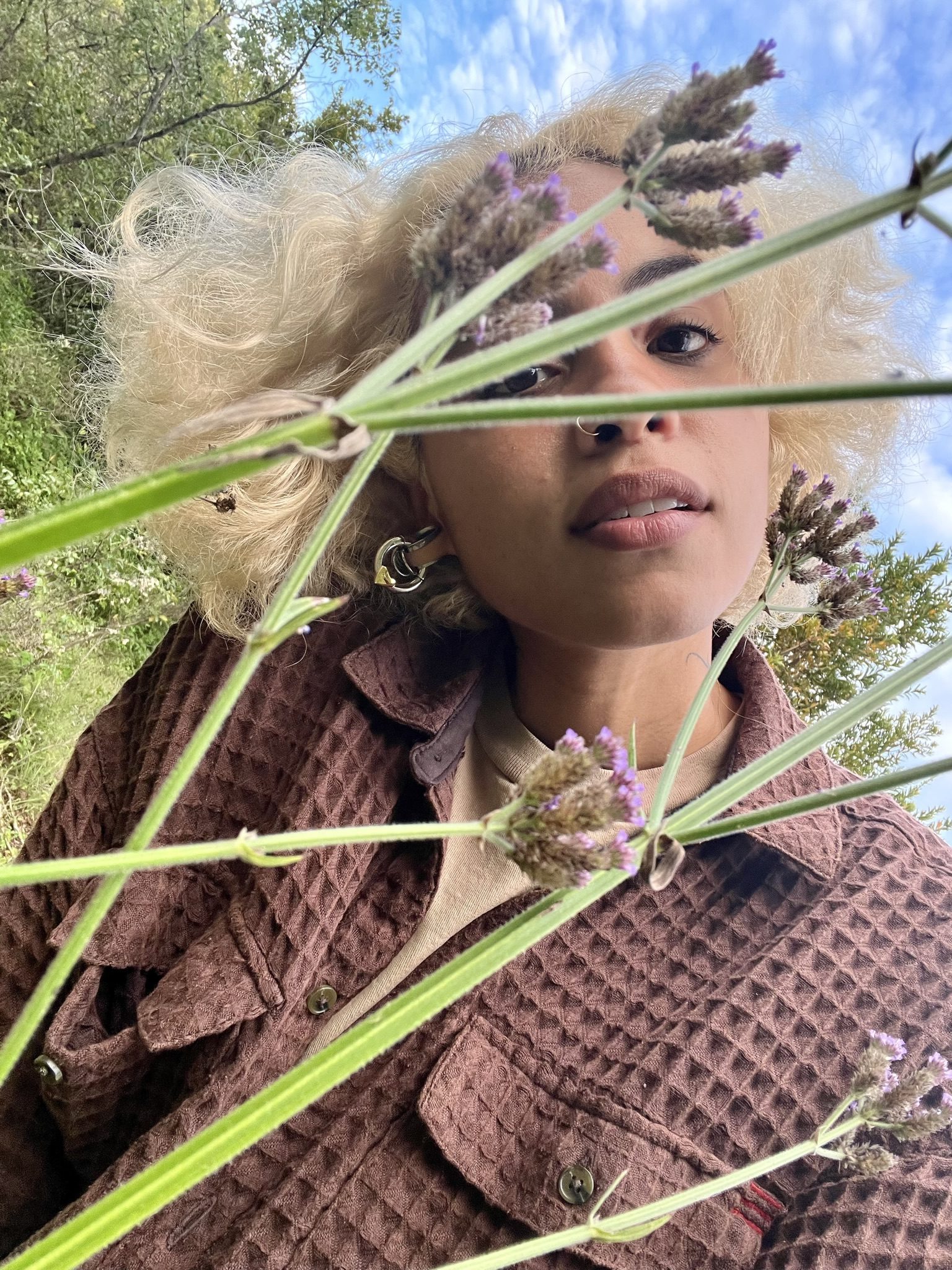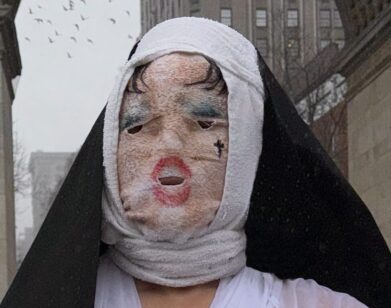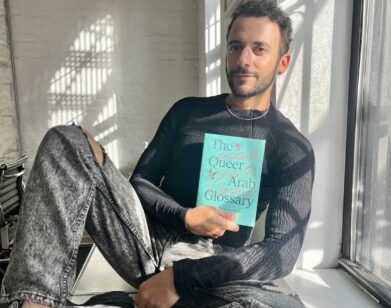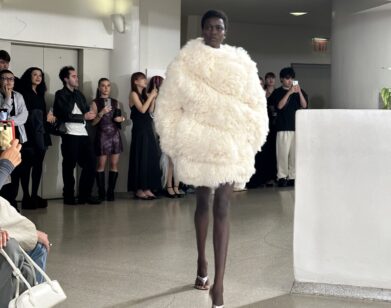BHM
Meet Sara Elise, the Hospitality Specialist Turned “Pleasure Doula”
Sara Elise is a New York-based chef, wellness coach, hospitality specialist, and now, author. Her debut book A Recipe for More: Choosing a Life of Pleasure and Abundance takes a radical, holistic approach to wellness, arguing that the connection between liberation and pleasure runs deep. Elise, a self-described “pleasure doula,” has specialized in creating unique experiences to help Black, indigenous, autistic, and queer communities in her own practice. With A Recipe for More, she hopes to help a wider audience embrace joy in the form of “rest, breath, movement, agency, visibility, and play.” In advance of the book’s release in May, we sat down with the forward-thinking creative for an expansive chat about her wellness journey, Rihanna’s halftime show, and seeking respite during Black History Month.
———
MICHAEL-MICHELLE PRATT: Hi Sara! I really loved A Recipe for More. What made you want to open up about your own journey with wellness?
SARA ELISE: I’ve always had a deep interest in self-improvement, but I didn’t really realize how much my own physical, mental, and emotional well-being is directly connected to that idea. When I was working in investment banking, I got to this point where I was doing everything that I had been told to do, and following the path that had been set for me. I was doing well at it as a Black and indigenous queer woman. I felt like I was doing all of the right things, yet I still felt really depressed. I was doing drugs and drinking myself numb all the time. I was really unhappy and I didn’t realize why, since I was doing everything that everyone told me to do, it just felt really confusing to me. That’s really what started my journey into wellness, just figuring out what needed to change.
PRATT: I know that you now own a catering business. Did that inform the structure of the book?
ELISE: It was such a natural decision because I’ve been working with food for over a decade now. When they asked me to write a book, even though I didn’t initially know what structure it would be, I knew I wanted food to be involved. The entire structure of the book is me basically thinking about what are the ingredients that allow me to live a life of abundance and ease.
PRATT: How were you able to balance this theoretical approach with your lived experience?
ELISE: Through storytelling. One of the chapters is about letting yourself be visible. I’m able to reflect on different moments in my life when I learned the lesson of that “ingredient.” It’s my own personal storytelling, but I also bring in the voices of other people who I admire. It became this structural metaphor for sharing lived experiences that other folks can hopefully benefit from.
PRATT: That was probably my favorite part of the book.
ELISE: Thank you.
PRATT: Who are some Black people that are working in the wellness industry, past or present, that really inspire you?
ELISE: Some people that inspire me are Tara Aura, Marisa Hall, and Liana Naima.
PRATT: I love that you mention the pressure that Black people feel working two or three times harder and having to be twice as good all the time. That’s something that I’ve heard from every parental figure in my life. Do you ever feel that you have to overextend yourself to be able to experience joy?
ELISE: That is a great question. A lot of us struggle with this. We’re told whether by our parents or just by society and other Black people all the time that what we’re doing isn’t good enough. Like, look at Rihanna’s Super Bowl performance. She’s literally pregnant on a moving platform. She’s dancing and singing. Yes, she wore a comfortable outfit and sneakers, but they were custom designed for her. Everything was thoughtful. People are like, “Did she do enough?” “Her performance was so lethargic.” All of this criticism.
PRATT: Is there any way that you’ve been incorporating these notions of kindness, wellness, and productivity in the ways that you’re celebrating Black History Month?
ELISE: One of the main ways I celebrate Black History Month is by resting a lot and making a lot of space for joy and celebration because, our whole lives, we’ve spent a lot of time with the painful moments of Black American history. We’ve had to learn a lot about our ancestral trauma so that we can figure out ways to heal from it. It’s meaningful for me to do the things this month that have historically been taken from us. I love celebrating and resting. I love turning down work so that I can rest and take space for myself instead of pushing, pushing, pushing.
PRATT: Often, so much of Black history month is highlighting the pain that Black people have suffered, or these amazing accomplishments. You sit in a nice middle ground.
ELISE: That’s what I aim to get at in my book. Here are some resources for how to balance in this world that basically is kind of encouraging us to be self-destructive. The first step is questioning and checking in on yourself, trying to figure out how to be balanced in a world that’s telling us not to be.
Pratt. I love that. My next question concerns erotica. Much of the work that you do involves the erotic. Especially for Black people in these spaces, activism and erotica feel so separate. How have you melded those together?
ELISE: Eroticism is connected to Black, indigenous, queer people, and disabled people, and in all the ways that abundance is. Eroticism is similar to abundance in that it’s our birthright. We’ve had so many ancestors who are pros at this, who live this every day and understand erotic energy and are able to heal people with it and use it for different spells. It’s something that has been stripped away from us. So we are now all in the process of relearning how to incorporate it into our lives. We are naturally all erotic beings and all have erotic energy centers and power in that way. Once I realized that, it felt very natural for me to include that as an aspect in my book.
PRATT: What do you feel brings you joy?
ELISE: What brings me joy currently? I just had a really beautiful trip to South Africa. I got to connect with a lot of new people and that felt really special to me. I’m home now, and my Brooklyn home brings me a lot of joy and peace. So getting to be in this space again is filling me up a lot. My family, my puppy, and my partners. Dancing outside. It’s winter right now, so I’m not doing a lot of dancing outside. But, that’s definitely something that I did in South Africa. Anytime I get the chance to do that, it fills my spirit. And always, food.
PRATT: Thank you so much, Sara.
ELISE: Thank you so much. It’s always a pleasure to talk to you. Talk later.







